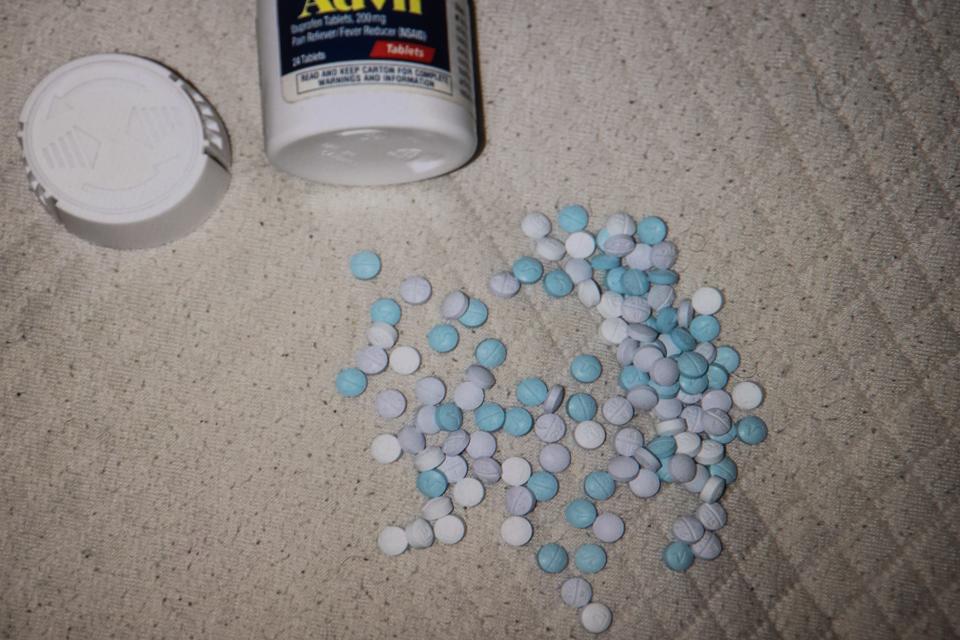Kentucky could lead the nation in addiction treatment innovation with ibogaine. It should seize it.
This month brought an unfortunate development in Kentucky’s efforts to research innovative solutions to the state’s opioid epidemic. W. Bryan Hubbard, head of the Kentucky Opioid Abatement Advisory Commission, was forced to resign after attorney general Russell Coleman requested he “move the commission in a different direction” regarding its proposed $42 million investment into research on the psychedelic compound ibogaine.
Ibogaine research could be a breakthrough opportunity for Kentucky
Hubbard deserves praise for his leadership on this front. His months-long personal investigation into ibogaine’s potential led him to stake his career on the conviction it could provide a “breakthrough opportunity” for Kentucky. And his proposal originated from a place of compassion: a desire to alleviate the suffering confronting too many families.
Despite Hubbard’s departure, the facts remain unaltered: Conventional modalities fail far too many with opioid use disorder and other addictions, and early ibogaine studies show intriguing signs it may deliver more durable remissions after one session than medications taken for months. More broadly, the scale of Kentucky’s crisis compels leaving no stone unturned in the ethical pursuit of solutions, even unfamiliar ones.
Read the opposing view: Ibogaine helped me beat heroin. But I oppose Kentucky funding psychedelic research.
Ironically, Hubbard's exit also comes at a moment of high optimism for ibogaine's potential. On Friday, January 5th, 2024 the distinguished scientific journal Nature published a highly-anticipated study into ibogaine's potential to alleviate the suffering of veterans with post-traumatic stress disorder. Per the study, the special operations veterans who were administered ibogaine noticed significant improvements in anxiety and PTSD, with no serious side effects.

Ibogaine's psychedelic experience brings hope to opioid crisis
More studies like this are needed, which is why Kentucky's potential investment in ibogaine research was encouraging. Small studies have found that ibogaine administered by trained facilitators may help patients achieve long-term abstinence from opioids and other substances in one treatment, versus months or years with conventional therapies. Ibogaine's psychedelic experience can provide clarity into the root psychological causes of addictive behaviors, while also potentially easing withdrawal symptoms for addicts.
To be sure, ibogaine can have dangerous side effects, including anxiety, visual hallucinations and cardiovascular effects including slowed heart rate. Some underground providers have endangered lives by working outside proper medical contexts. Any legalization efforts must prioritize safety through strict protocols and trained facilitators.
Ibogaine is not a standalone cure for opioid addiction
Additionally, ibogaine is not a silver bullet or standalone cure. One session may interrupt addictive patterns, providing a window for psychotherapy and behavior change. But integrative aftercare is critical to cement insights into permanent transformation. States exploring legalization must ensure medical oversight and integration services are adequately funded.
Read the opposing view: $42M for psychedelics research is not how Kentucky should be fighting opioid addiction
There are also sustainability concerns. The plant from which ibogaine is derived — tabernanthe iboga — only grows in Central Africa’s rapidly-vanishing rainforests. We must prioritize synthetic production to prevent poaching, and African stakeholders must be included in developing ethical supply chains and benefit-sharing agreements
Fortunately, pioneering states and research groups are approaching legalization thoughtfully. Some are beginning with restricted clinical trials or pilot programs at addiction treatment facilities pairing ibogaine with comprehensive medical and integrative care. Others have proposed funding to develop synthetic ibogaine, lessening pressure on wild iboga supplies. Such incremental steps can limit risks while gathering critical data on effectiveness.
Psychedelics are proving to be effective treatment
Crucially, ibogaine's increasing acceptance comes on the heels of other once-dismissed psychedelics that are proving uniquely effective at treating entrenched post-traumatic stress and substance use disorders. The FDA has granted breakthrough status to MDMA-assisted therapy for PTSD and psilocybin for treatment-resistant depression. Early trials show promise helping patients transform deeply ingrained thought patterns underlying addictive behaviors.
While psychedelics assuredly carry risks and are not appropriate for all, surely America’s sprawling mental health crisis demands that we explore all ethical options that may provide such hope, especially to those who have struggled with conventional treatments. By funding controlled research into ibogaine, Kentucky can guide prudent reform grounded in scientific clarity.

Khaliya is a public health specialist and mental health advocate. She is the founder of the Falkora Mental Health and Neurotech Initiative and was previously an expert for the World Economic Forum’s Futures Council for the Future of Health and Healthcare.
This article originally appeared on Louisville Courier Journal: Kentucky's new direction for opioid settlement funds.

